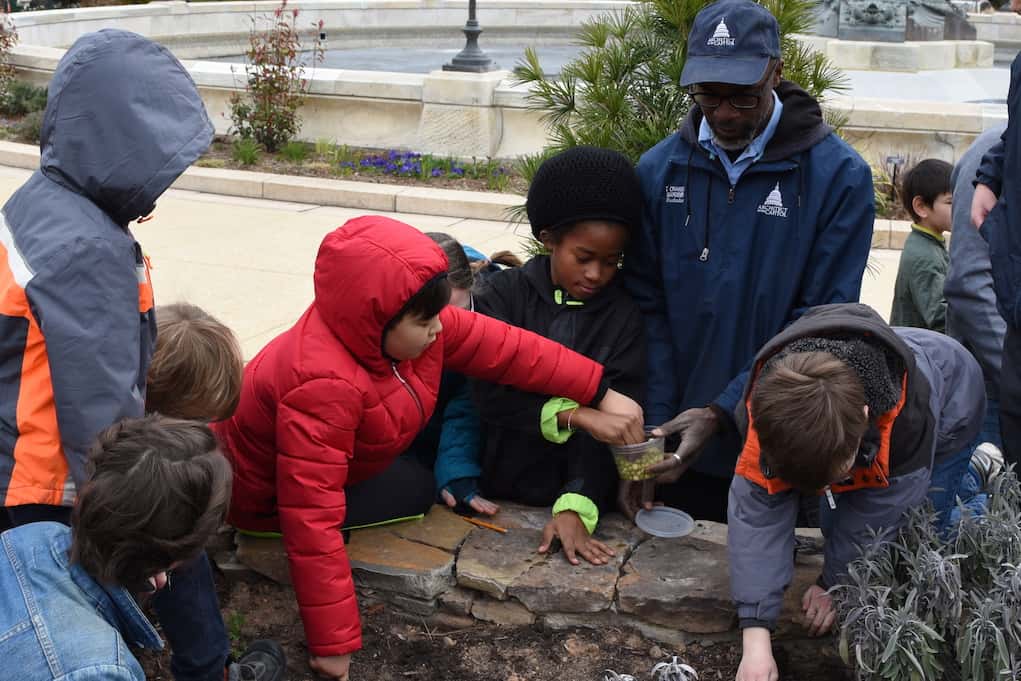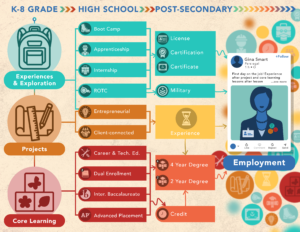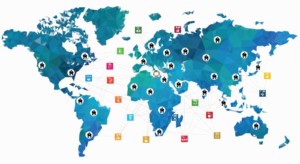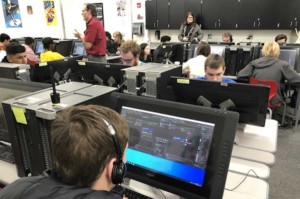Building Student Civic Engagement through Sustainability Education

By: Anisa Heming
The need for student-centered sustainability education is becoming clearer by the day. Young people who understand and can respond to changes in our natural environment and the stresses they place on our communities will be leaders now and in the future. Additionally, numerous additional benefits for incorporating environmental and sustainability education into the curriculum are emerging from recent research, including increased civic engagement. Put together civic engagement grounded in the environment with one of the most successful and popular concepts in education, project-based learning, and you get students creating change in their own schools to benefit the environment and their community.
A Stanford University review of 119 studies measuring the impact of environmental education found evidence that it builds emotional and social skills, improves environmentally friendly behavior, and increases civic interest and ability to take action. When we educate and equip students to lead action at their school, they are more likely to become ambassadors of social and environmental responsibility, educating their families and broader communities about the value of sustainability. The stories of individual schools taking this approach are inspiring. Schools that have implemented high-quality sustainability education can see the success of students’ sustainability efforts community-wide, and by inviting the surrounding community to support and be part of the process, the efforts of the students can become a source of local pride.
Planning and implementing project-based learning that incorporates sustainability education can be tricky. Common missteps are similar to the missteps we see across project-based and inquiry-based learning models—letting students lead means setting strong ground rules, preparing to help students down various pathways, and then letting go a little more than usual.
 A growing group of educators have developed a high level of expertise in cultivating schools that foster student leadership and also model a commitment to the environment and their communities through school policies. Each year, the Green Schools Conference and Expo (GSCE) convenes a diverse collection of experts to lead conversations on sustainability education and empowering students to investigate and create change.
A growing group of educators have developed a high level of expertise in cultivating schools that foster student leadership and also model a commitment to the environment and their communities through school policies. Each year, the Green Schools Conference and Expo (GSCE) convenes a diverse collection of experts to lead conversations on sustainability education and empowering students to investigate and create change.
At this year’s conference on April 8-10th in Saint Paul, Minnesota, school sustainability action and project-based learning will take the front seat in education sessions. In one of the 60 conference sessions, Prairie Crossing Charter School, a consistent top 10% school in Illinois for academic performance, will discuss how the intersection of project-, problem-, and place-based service learning has been key to their students’ success. The school uses Education for Sustainability standards to build the culture to prepare their students to be leaders in their communities. The executive director and environmental leader of the school will present their framework on shifting school mindsets to strengthen their students’ image of themselves as leaders.
In another session, The School of Environmental Studies in Apple Valley, Minnesota will explain how students led the school through the process of getting LEED certified. Mentored by green building professionals from their community, the students initiated and implemented the certification project. Student leaders, teachers, and the community mentor will share their challenges and successes. The school will be one of the first schools in the world to be certified under the newest version of LEED as an existing building, and the project team has unique perspectives for enabling student action and empowering student leaders.
The conference will also feature a full-day workshop that includes a tour of the School of Environmental Studies and a workshop facilitated by the director of Earth Force, a non-profit that focuses on student civic engagement. Participants will discuss with each other, with students, and with experts in student engagement about overcoming the common challenges of encouraging student advocacy and action at school.
Educators often cite low levels of engagement when students have difficulty connecting classroom learning with the struggles and realities in their communities. Sustainability education, by definition, is connected to global realities, a school’s unique place, and the surrounding community. We can equip educators to use the context of the environment to strengthen these connections for their students, and green schools are leading and providing powerful examples for others.
For more, see:
- Learner-Centered Iowa-BIG Propels Jemar Lee
- Learning Gardens Provide Equity, Access and Great Food
- What Happens When We Do School Better?
The Green Schools Conference & Expo is hosted by the Center for Green Schools at USGBC in partnership with the Green Schools National Network. The 2019 conference is on April 8-10 in St. Paul, MN. More information can be found at www.greenschoolsconference.org.
Anisa Heming is director of the Center for Green Schools at the U.S. Green Building Council.
Stay in-the-know with innovations in learning by signing up for the weekly Smart Update




0 Comments
Leave a Comment
Your email address will not be published. All fields are required.